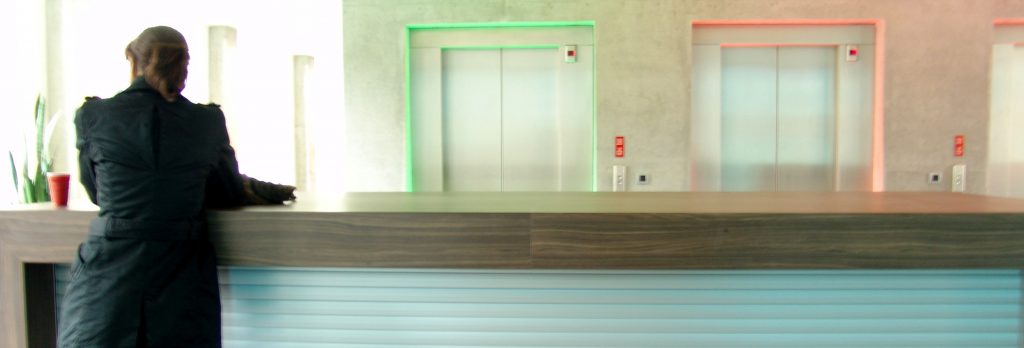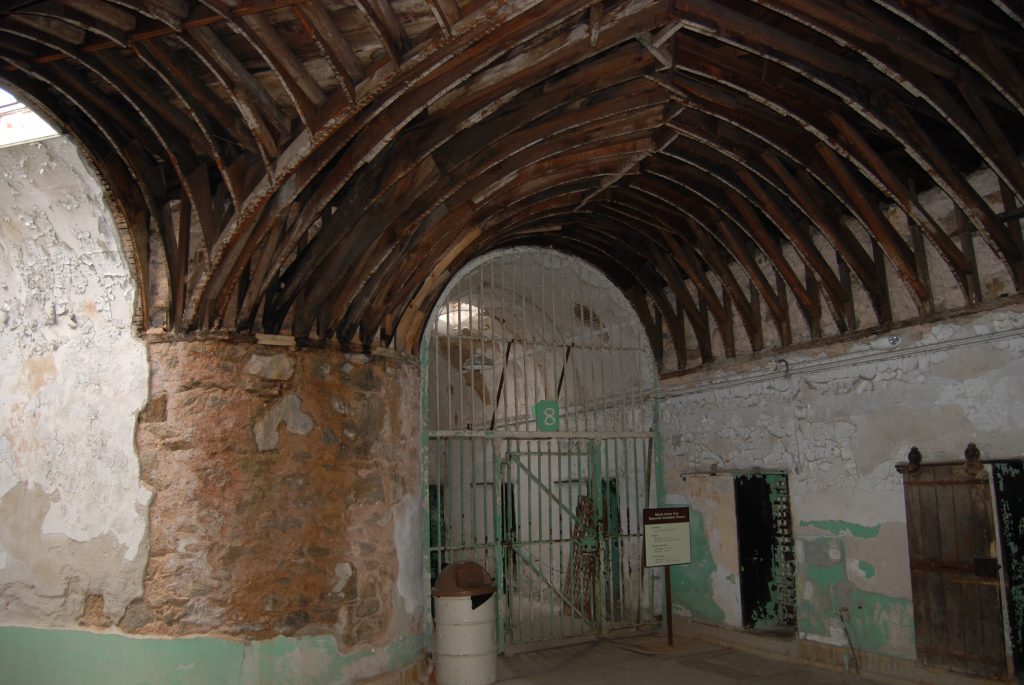 Generally, plaintiffs bring an action against an adverse party to be made whole again in some way. Bringing a claim is a remedy seeking process. But, can a claimant’s inaction cause the proceeding to be dismissed? The Louisiana Fifth Circuit Court of Appeal recently answered this question in the affirmative in a case out of Jefferson Parish.
Generally, plaintiffs bring an action against an adverse party to be made whole again in some way. Bringing a claim is a remedy seeking process. But, can a claimant’s inaction cause the proceeding to be dismissed? The Louisiana Fifth Circuit Court of Appeal recently answered this question in the affirmative in a case out of Jefferson Parish.
Kevin Lewis filed a petition against Digital Cable alleging tortious conduct and seeking damages for injuries he sustained while their employee. A year later on November 17, 2009, the Twenty-Fourth Judicial District Court for the Parish of Jefferson entered a preliminary default against Digital Cable. On September 16, 2014, nearly five years later, Mr. Lewis filed a motion for confirmation of the default judgment. Digital Cable filed a motion for dismissal for abandonment asserting that since more than three years had passed since Mr. Lewis’ last step in the case, an order of dismissal was required. Mr. Lewis opposed this motion and argued that abandonment was interrupted on November 28, 2011, because he served a notice of deposition for his physician, Dr. Ogbuokiri. Digital Cable argued that the notice of deposition entered into evidence did not contain a certificate of service thus there was no proof that the notice had actually been served on all parties; a requirement to interrupt abandonment. On January 13, 2015, the Trial Court signed an order dismissing the case for abandonment.
Mr. Lewis filed a motion to vacate the order and his motion was heard on March 2, 2015. Mr. Lewis once again argued that the abandonment period was interrupted by the deposition notice. His lawyer, Pius Obioha, testified that a signed notice of deposition and certificate of service was mailed to Dr. Ogbuokiri and to Digital Cable’s agent. It seems that at the 2015 hearing, a certificate of service obtained from Dr. Ogbuikiri’s office was introduced into evidence, however, its authenticity was questionable. When questioned as to why Mr. Obioha, as the lawyer, did not have a copy of the certificate he testified that someone in his office must have forgotten to make a copy and that he did not really look very hard for it. He did allegedly have the presence of mind to remember physically placing the notice and certificate in the mail; a fact not corroborated and supported solely by his own testimony. The Trial Court concluded that the notice of deposition should be admitted into evidence yet as an unauthenticated piece of evidence. Unable to authenticate the notice, the Trial Court upheld the dismissal order. Mr. Lewis appealed to the Fifth Circuit.
 Louisiana Personal Injury Lawyer Blog
Louisiana Personal Injury Lawyer Blog


 In law, deadlines and rules of procedure are very important. Good cases can be lost because someone missed a deadline or did not understand and follow a procedural rule. That is why it is so important to ensure you have a good attorney who understands the rules of procedure and who keeps close track of deadlines, especially those for appeals.
In law, deadlines and rules of procedure are very important. Good cases can be lost because someone missed a deadline or did not understand and follow a procedural rule. That is why it is so important to ensure you have a good attorney who understands the rules of procedure and who keeps close track of deadlines, especially those for appeals. Sometimes procedural rules are overlooked as merely a peripheral aspect of a lawsuit. However, nothing could be further from the truth. Oftentimes you need to overcome numerous procedural hurdles just to reach the merits of a case. The following case illustrates the importance of procedure in the practice of law.
Sometimes procedural rules are overlooked as merely a peripheral aspect of a lawsuit. However, nothing could be further from the truth. Oftentimes you need to overcome numerous procedural hurdles just to reach the merits of a case. The following case illustrates the importance of procedure in the practice of law. In Louisiana, a victim of fraud can recover actual damages resulting from the fraud, treble damages up to three times the amount of actual damages, and reasonable attorneys fees and costs. However, this potentially large recovery is barred by a peremptory period if the defrauded party doesn’t bring the lawsuit within one year. In certain cases, the issue of when exactly this one-year timer starts can be dispositive. The following case dealing with two real estate transactions illustrates the point.
In Louisiana, a victim of fraud can recover actual damages resulting from the fraud, treble damages up to three times the amount of actual damages, and reasonable attorneys fees and costs. However, this potentially large recovery is barred by a peremptory period if the defrauded party doesn’t bring the lawsuit within one year. In certain cases, the issue of when exactly this one-year timer starts can be dispositive. The following case dealing with two real estate transactions illustrates the point.  Wrongful demolition is a cause of action rarely invoked because the events giving rise to such an action rarely occur. Essentially, a claim for wrongful demolition arises when a plaintiff’s property was mistakenly or wrongfully demolished. In the following case, Morgan Moss found himself in the unique position of asserting such a claim against the town of Rayville, Louisiana. See
Wrongful demolition is a cause of action rarely invoked because the events giving rise to such an action rarely occur. Essentially, a claim for wrongful demolition arises when a plaintiff’s property was mistakenly or wrongfully demolished. In the following case, Morgan Moss found himself in the unique position of asserting such a claim against the town of Rayville, Louisiana. See  Ignoring instructions when assembling a coffee table, toys, or other household items may not, in the end, prove highly detrimental. In fact, such practices are commonplace. However, failing to follow the correct procedural steps is ruinous in the world of lawsuits. Recently, the Louisiana Third Circuit Court of Appeal was forced to dismiss an appeal because of a plaintiff’s failure to follow the required procedural steps.
Ignoring instructions when assembling a coffee table, toys, or other household items may not, in the end, prove highly detrimental. In fact, such practices are commonplace. However, failing to follow the correct procedural steps is ruinous in the world of lawsuits. Recently, the Louisiana Third Circuit Court of Appeal was forced to dismiss an appeal because of a plaintiff’s failure to follow the required procedural steps. Does your homeowner’s insurance policy include coverage for libel or slander? We all make inappropriate comments and write negative reviews online from time to time. But what if you are sued for something you say or write? In a recent case out of Caddo Parish, Louisiana a dentist learned that while your policy may extend coverage for negligent acts, the insurance company may not be so willing to come to your defense for intentional acts.
Does your homeowner’s insurance policy include coverage for libel or slander? We all make inappropriate comments and write negative reviews online from time to time. But what if you are sued for something you say or write? In a recent case out of Caddo Parish, Louisiana a dentist learned that while your policy may extend coverage for negligent acts, the insurance company may not be so willing to come to your defense for intentional acts.  School bullying is a commonly discussed problem in our generation. Parents are often faced with dilemmas on how to protect their children and instruct them in dealing with bullies at school. In earlier eras perhaps this was considered a problem for the individual family to bear alone. In a recent case out of Plain Dealing, Louisiana however, the Louisiana Second Circuit Court of Appeal affirmed that school teachers and the school board can now be held liable for such bullying and its effects.
School bullying is a commonly discussed problem in our generation. Parents are often faced with dilemmas on how to protect their children and instruct them in dealing with bullies at school. In earlier eras perhaps this was considered a problem for the individual family to bear alone. In a recent case out of Plain Dealing, Louisiana however, the Louisiana Second Circuit Court of Appeal affirmed that school teachers and the school board can now be held liable for such bullying and its effects.  It is no secret that lawsuits are expensive creatures. It is perhaps baffling then that a party would retain an attorney, file a lawsuit, and maintain that lawsuit for over thirteen years without sufficiently actively pursuing that lawsuit. Yet, that is exactly what happened in a recent case out of Livingston Parish. And as the case explains, such inactivity within a case subjects the lawsuit to dismissal for abandonment. Money and time wasted for all parties involved.
It is no secret that lawsuits are expensive creatures. It is perhaps baffling then that a party would retain an attorney, file a lawsuit, and maintain that lawsuit for over thirteen years without sufficiently actively pursuing that lawsuit. Yet, that is exactly what happened in a recent case out of Livingston Parish. And as the case explains, such inactivity within a case subjects the lawsuit to dismissal for abandonment. Money and time wasted for all parties involved.  Unfair treatment at work can, unfortunately, be a common occurrence. While always annoying, the treatment can sometimes rise to such an egregious level that an employee feels justified in filing a lawsuit against the employer; especially if the aggrieved employee feels that there are racially motivated variances in treatment. As with all cases, however, the evidence is the key that unlocks the door to a successful lawsuit. For Rosie Washington, a former employee of the Louisiana State Penitentiary, an employment discrimination case devoid of evidence kept her victory behind locked doors.
Unfair treatment at work can, unfortunately, be a common occurrence. While always annoying, the treatment can sometimes rise to such an egregious level that an employee feels justified in filing a lawsuit against the employer; especially if the aggrieved employee feels that there are racially motivated variances in treatment. As with all cases, however, the evidence is the key that unlocks the door to a successful lawsuit. For Rosie Washington, a former employee of the Louisiana State Penitentiary, an employment discrimination case devoid of evidence kept her victory behind locked doors.